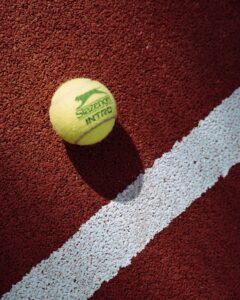Recovering from Common Padel Injuries: Best Practices
2 min read
Recovering from Common Padel Injuries: Best Practices
As a padel player, you may be all too familiar with injuries that can occur during the game. Some of the most common padel injuries include sprains, strains, and bruises. While these injuries can be painful and frustrating, there are ways to recover that can help you get back in the game faster.
Preventing Common Padel Injuries
Of course, the best way to recover from common padel injuries is to prevent them from happening in the first place. Be sure to properly warm up before playing and to wear appropriate footwear to prevent slips and falls. Consider wearing protective equipment such as knee pads to cushion any falls you might take during play.
Another way to prevent padel injuries is to listen to your body. If you start to feel any pain, take a break and rest. Continuing to play through the pain can result in further injury and increase the time it takes for you to recover.
Recovering from Sprains and Strains
If you do sustain a sprain or strain during play, rest, ice, compression, and elevation (RICE) is the best course of action. Rest the affected area and avoid putting any pressure on it. Ice the area for 20 minutes every hour to reduce swelling. Wrap the area tightly with bandages or compression wraps to help reduce inflammation. Finally, elevate the affected area above your heart to help reduce swelling.
After a few days of RICE, you may be able to start slowly reintroducing activity to the affected area. Start with simple range-of-motion exercises and gradually increase the intensity over time. If the pain persists, seek medical attention.
Recovering from Bruises and Contusions
Bruises and contusions are another common padel injury that can be painful and cause swelling. To help reduce the pain and swelling, a cold compress can be applied immediately to the affected area. After a few days, a warm compress can help promote blood flow and speed up the healing process.
If the bruise is particularly painful, over-the-counter pain relievers such as ibuprofen or acetaminophen can be useful. As with sprains and strains, if the pain persists, medical attention may be necessary.
In conclusion, recovering from common padel injuries requires rest, proper treatment, and time. By listening to your body and taking appropriate measures to prevent injuries from occurring, you can continue to enjoy the game of padel for years to come.






